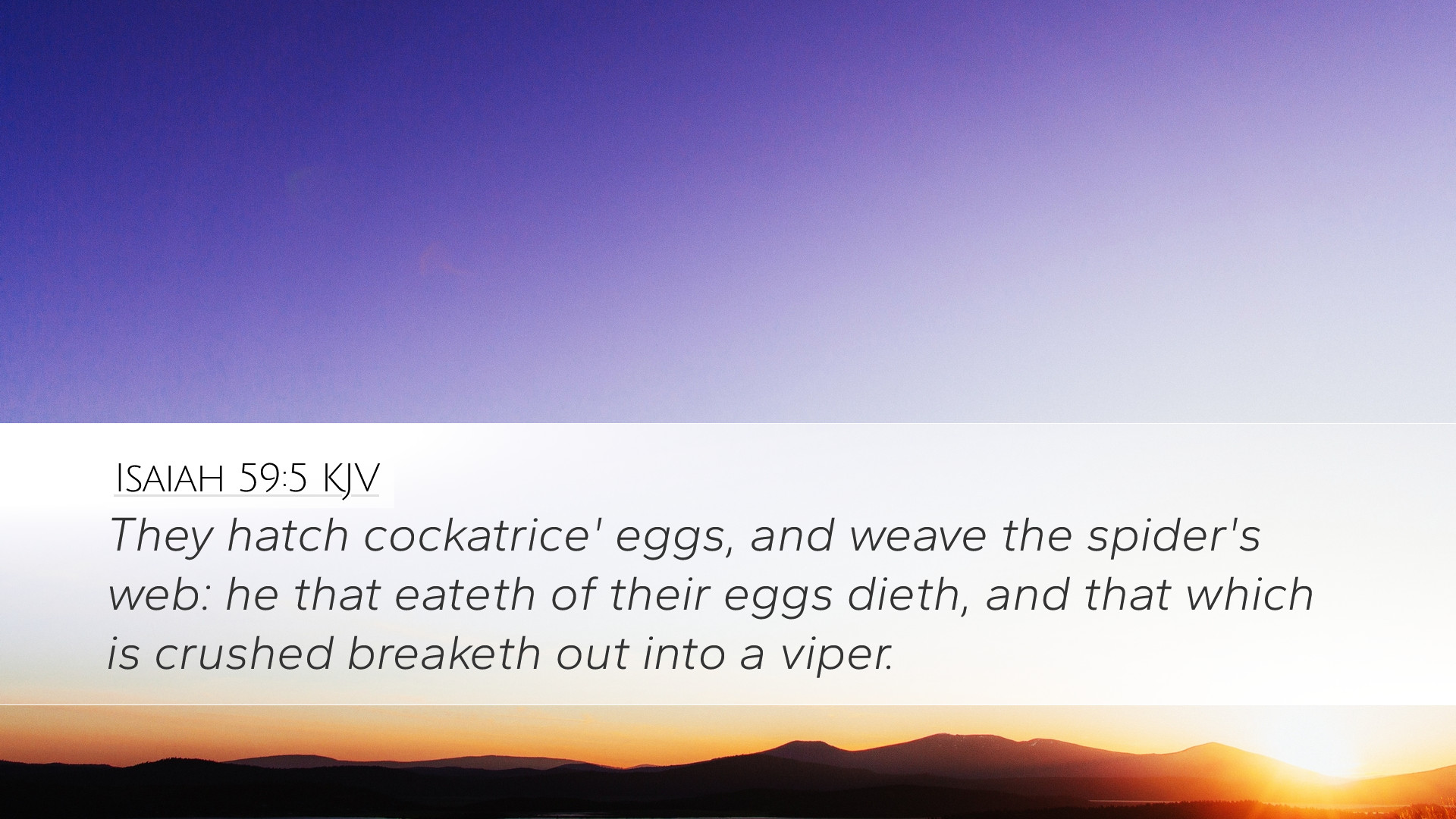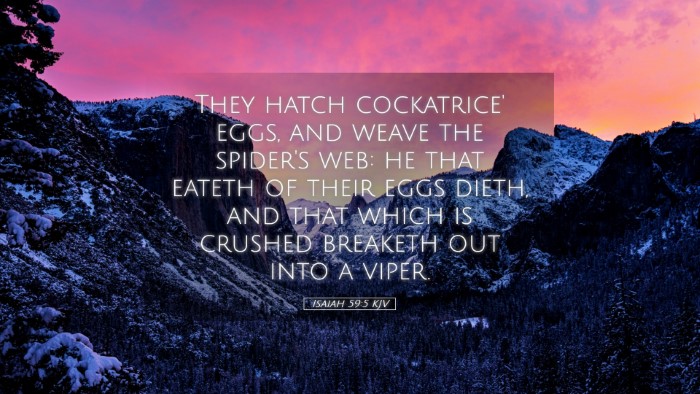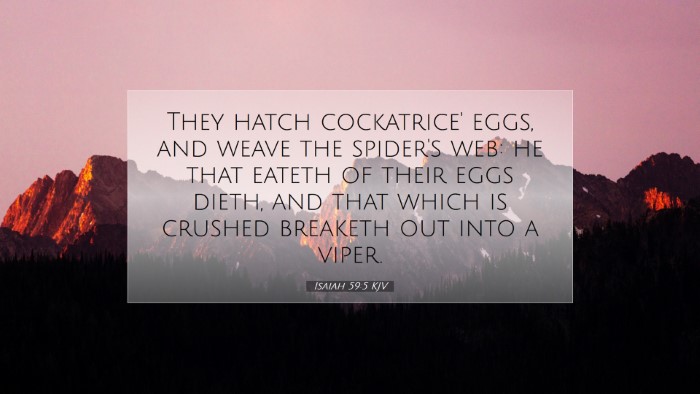Commentary on Isaiah 59:5
Isaiah 59:5 states: "They hatch vipers' eggs, and weave the spider's web: he that eateth of their eggs dieth, and that which is crushed breaketh out into a viper." This verse serves as a poignant metaphor concerning the destructive nature of sin and the consequences of iniquity. Below, we explore insights from public domain commentaries to glean a more profound understanding of this passage.
Exegesis of Isaiah 59:5
This verse illustrates the futility and danger of evil actions. The imagery of vipers' eggs and spider's webs presents a clear picture of the deceptive and deadly nature of sin.
Insights from Matthew Henry
According to Matthew Henry, the 'vipers' eggs' symbolize the sinful actions that arise from wickedness. Just as a viper is a creature of danger, so too are the consequences of sin. He emphasizes how the act of hatching these eggs refers to the initial stages of sin where men give birth to iniquity through their thoughts and actions. Henry writes:
"Those who indulge in sin lay a foundation for death; their actions produce harmful fruits which ultimately lead to destruction."
Moreover, he elaborates that the 'spider's web' signifies the deceptive traps that sin lays for the unwary. Just as a spider ensnares its prey, the webs of evildoers entrap those who are unsuspecting of the dangers they convey.
Insights from Albert Barnes
Albert Barnes approaches this verse by highlighting the inevitability of the consequences of sin. He suggests that the act of consuming the eggs leads to death, representing the inevitable outcome of engaging in sinful deeds. He notes:
"The images here are strong, portraying the fundamental truth that involvement in sin leads not only to spiritual death but often to physical demise as well."
Barnes further interprets 'that which is crushed breaketh out into a viper' as a revelation of the unforeseen dangers that arise from seemingly innocent actions. This serves as a warning to society about the latent tendencies within sin; the outcome of sin can often manifest in ways that are not immediately apparent, thus warning against complacency in any form of wrongdoing.
Insights from Adam Clarke
Adam Clarke provides a comprehensive analysis that links this verse to the broader theme of Israel’s moral failings. He posits that this passage encapsulates the essence of Israel's corruption during Isaiah's time, illustrating a society that embraces sin. Clarke posits:
"This verse serves to depict Israel's moral degeneration, illustrating how their actions lead to spiritual decay, akin to the hatching of a venomous reptile."
Clarke also comments on the notion that 'weaving the spider's web' implies the planning and meticulous execution of sinful schemes. This suggests a deliberate engagement in sin which poses dangers not only to themselves but also to others in the community.
Theological Reflection
When interpreting Isaiah 59:5, it is vital to consider the theological implications. The imagery paints a dire picture, reflecting how sin begets further sin and leads to ruin. The warnings embedded in this metaphor are crucial for pastoral reflection:
- Spiritual Awareness: Believers must remain vigilant and discerning about the seeds of sin that may take root in their lives.
- Consequences of Sin: The notion that sin leads to death should prompt serious reflection on the nature and gravity of sin.
- Community Responsibility: The actions of individuals can have communal repercussions, reminding the church of its collective responsibility to uphold righteousness.
Conclusion
Isaiah 59:5 serves as a cautionary tale regarding the dangers of sin and its far-reaching consequences. Through the insights of Matthew Henry, Albert Barnes, and Adam Clarke, contemporary readers can gain a deeper understanding of this verse as a stark warning. It emphasizes the necessity of repentance and a pursuit of holiness in the life of the believer.
Such reflections are vital for pastors, students, theologians, and scholars, serving as both an admonition and a guide for nurturing a devout and vigilant faith.


